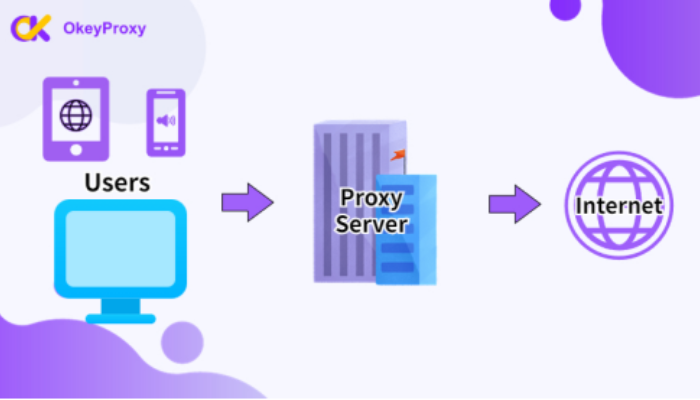Are you struggling to access your favorite websites at school due to strict internet restrictions? A “proxy server unblocked for school” could be the solution you need. Many educational institutions block access to social media platforms, gaming sites, and other non-educational content. However, with the right proxy server, you can bypass these restrictions safely and anonymously. In this guide, we’ll explore how proxy servers work, why schools block certain websites, and how you can safely and responsibly access blocked content.
What is a Proxy Server and How Does It Work?
A proxy server unblocked for school acts as an intermediary between your device and the internet. When you request a web page, the proxy server retrieves the information on your behalf and delivers it to you. This process allows you to hide your IP address and browse anonymously.
Proxy servers come in various forms, including HTTP proxies, SOCKS proxies, and transparent proxies. Each type serves a specific purpose. For instance, HTTP proxies are ideal for browsing websites, while SOCKS proxies handle a broader range of data, including video and audio. By using a proxy server unblocked for school , you can access restricted sites without directly interacting with the school’s network filters.
Why Do Schools Block Websites?
Schools enforce internet restrictions to create a focused learning environment. Social media sites like Facebook and YouTube can distract students from their studies. Additionally, these measures help protect students from inappropriate content and potential cybersecurity threats.
Network administrators use firewall rules and content filtering software to restrict access. While these measures are beneficial for educational purposes, they can also prevent students from accessing useful resources. A proxy server unblocked for school allows you to bypass these limitations and reach the content you need.
How to Find a Reliable Proxy Server Unblocked for School
Finding a reliable proxy server is crucial for ensuring privacy and security. Free proxy servers are widely available, but they often come with risks like slower speeds and data tracking. Paid proxy services generally offer better security and faster connections.
When choosing a proxy server unblocked for school, prioritize options that provide HTTPS encryption, as it protects your data from being intercepted. Look for reputable providers with positive user reviews to ensure a safe browsing experience. Always avoid unknown or suspicious proxies, as they can compromise your privacy.
Steps to Use a Proxy Server at School
Using a proxy server at school is relatively simple if you follow these steps:
Choose a Reliable Proxy: Select a trustworthy proxy server from a reputable provider.
Configure Your Browser Settings: Input the proxy address and port number in your web browser’s network settings.
Test the Connection: Ensure the proxy is working by visiting a blocked website.
Browse Responsibly: Use the proxy server only for educational or appropriate purposes to avoid violating school policies.
Additionally, browser extensions and proxy websites can offer a quick way to access blocked content. Always ensure your connection is secure to protect your personal data.
Pros and Cons of Using Proxy Servers in School
Proxy servers offer several advantages for students seeking unrestricted access to information. One of the primary benefits is bypassing content filters, which allows you to research beyond the school’s approved resources. Moreover, proxies can enhance privacy by masking your IP address.
However, there are also downsides to consider. Free proxies often have slower speeds and may track your browsing activity. Additionally, using proxy servers may violate your school’s internet usage policies, leading to disciplinary action. It is essential to weigh these pros and cons before using a proxy server unblocked for school.
Conclusion
A proxy server unblocked for school can be a valuable tool for accessing restricted websites and broadening your research capabilities. By understanding how proxies work and selecting a reliable service, you can navigate school internet restrictions safely and responsibly. Always prioritize privacy and adhere to your institution’s guidelines when using a proxy server.
Frequently Asked Questions (FAQs)
1. Is it legal to use a proxy server at school? While not inherently illegal, using a proxy server may violate school policies. Always review your school’s guidelines before using one.
2. Can I use a free proxy server safely? Free proxies can be risky due to potential data tracking and slower speeds. Choose a reputable provider for better security.
3. How do I find a proxy server unblocked for school? Search for reliable proxy services online, focusing on those offering HTTPS encryption and positive user reviews.
4. What is the difference between a proxy and a VPN? A proxy server handles specific requests, while a VPN encrypts your entire internet connection for more comprehensive privacy.
5. Can proxy servers bypass all school restrictions? While effective for many sites, advanced firewalls and detection methods can block certain proxy servers.
6. Are there risks to using a proxy server? Yes, risks include data interception, slower speeds, and violating school policies.
7. How do I set up a proxy server on my device? Configure your device’s network settings by entering the proxy address and port number.
8. Why do some proxy servers stop working? Schools frequently update their filters to block new proxy addresses, making some proxies obsolete.
9. Can I use a proxy on my smartphone? Yes, you can configure proxy settings on most smartphones in the network settings menu.
10. Are there alternatives to proxy servers? Yes, alternatives include VPNs, Tor browsers, and smart DNS services for accessing restricted content.





